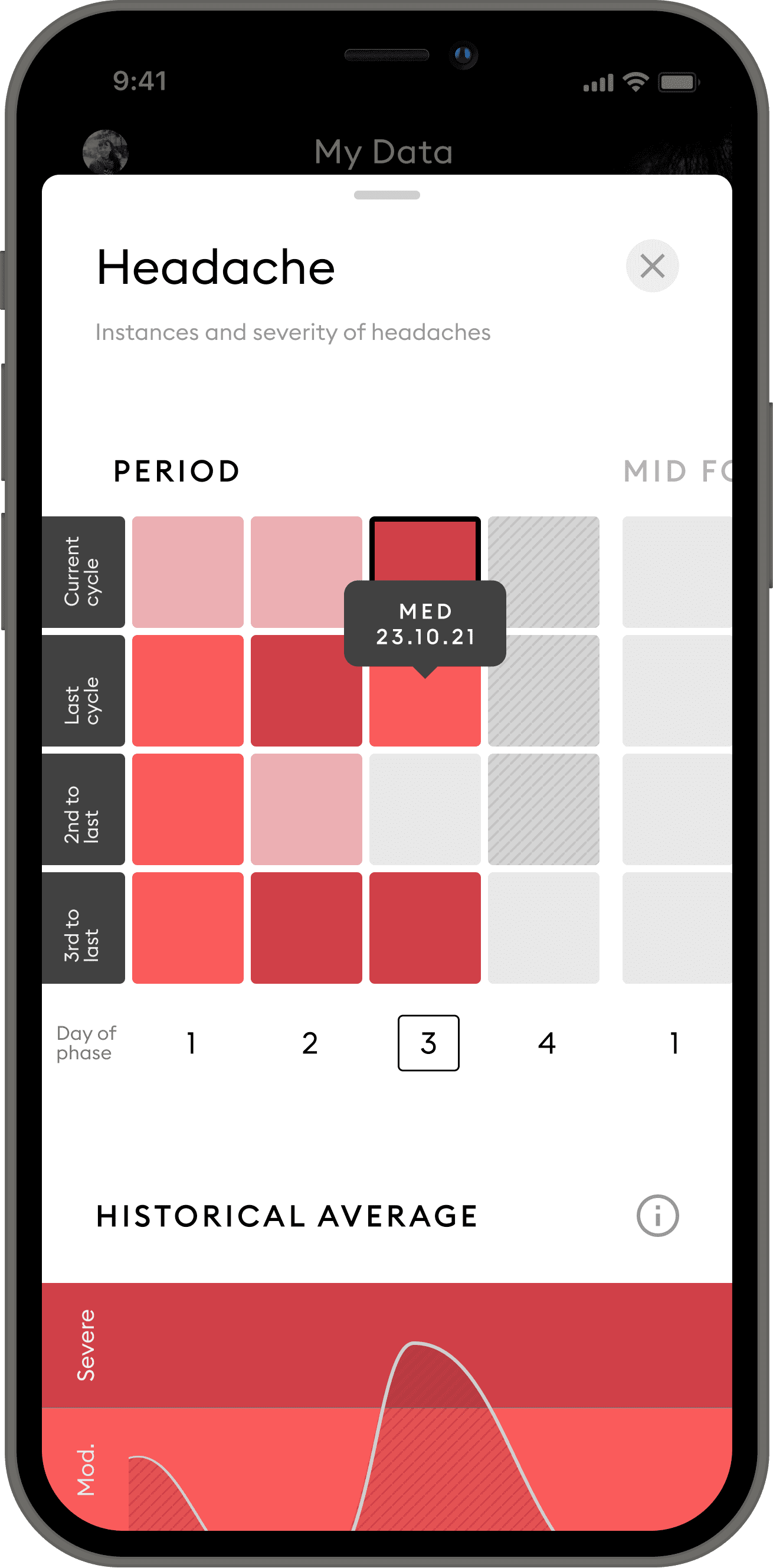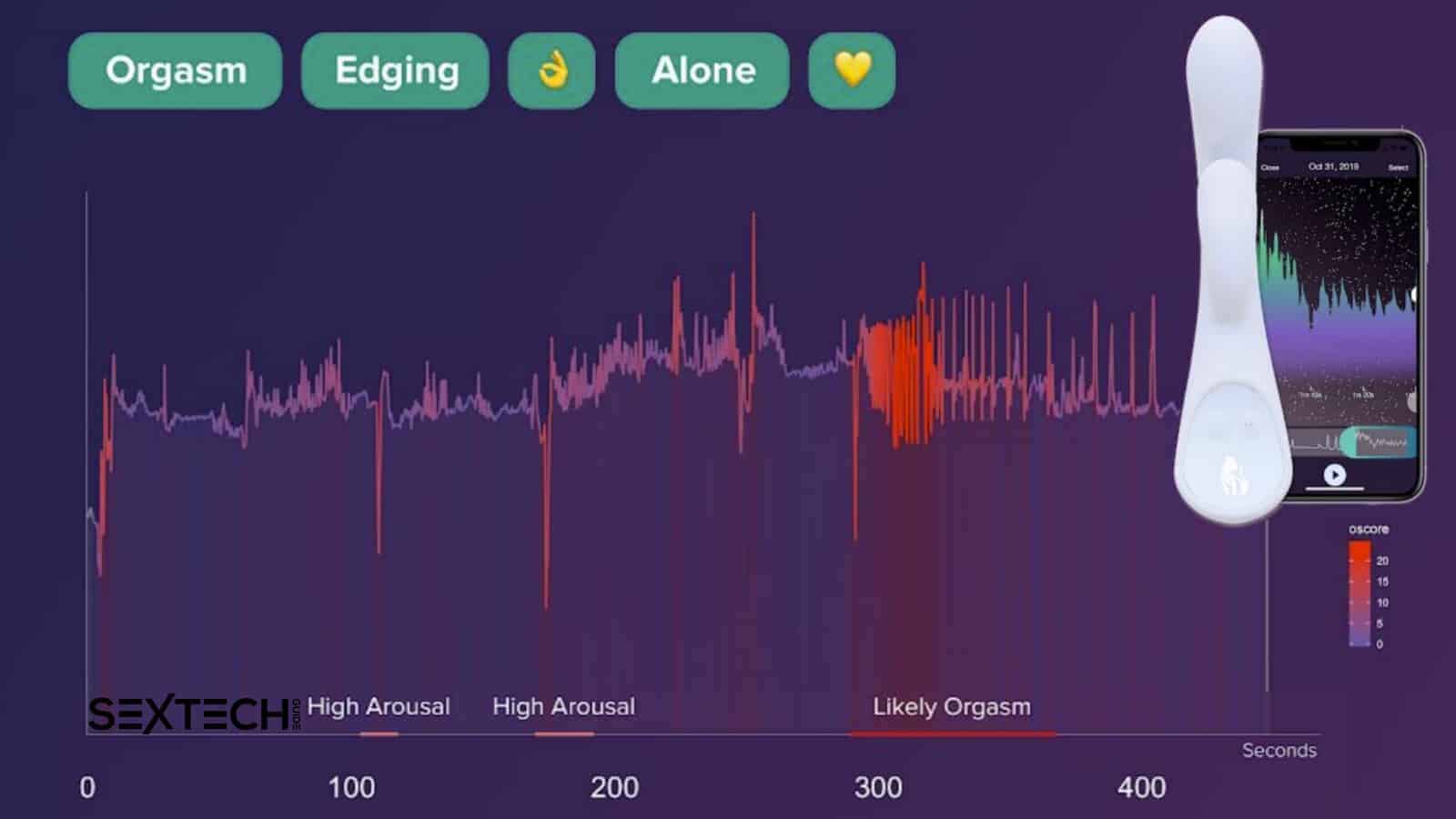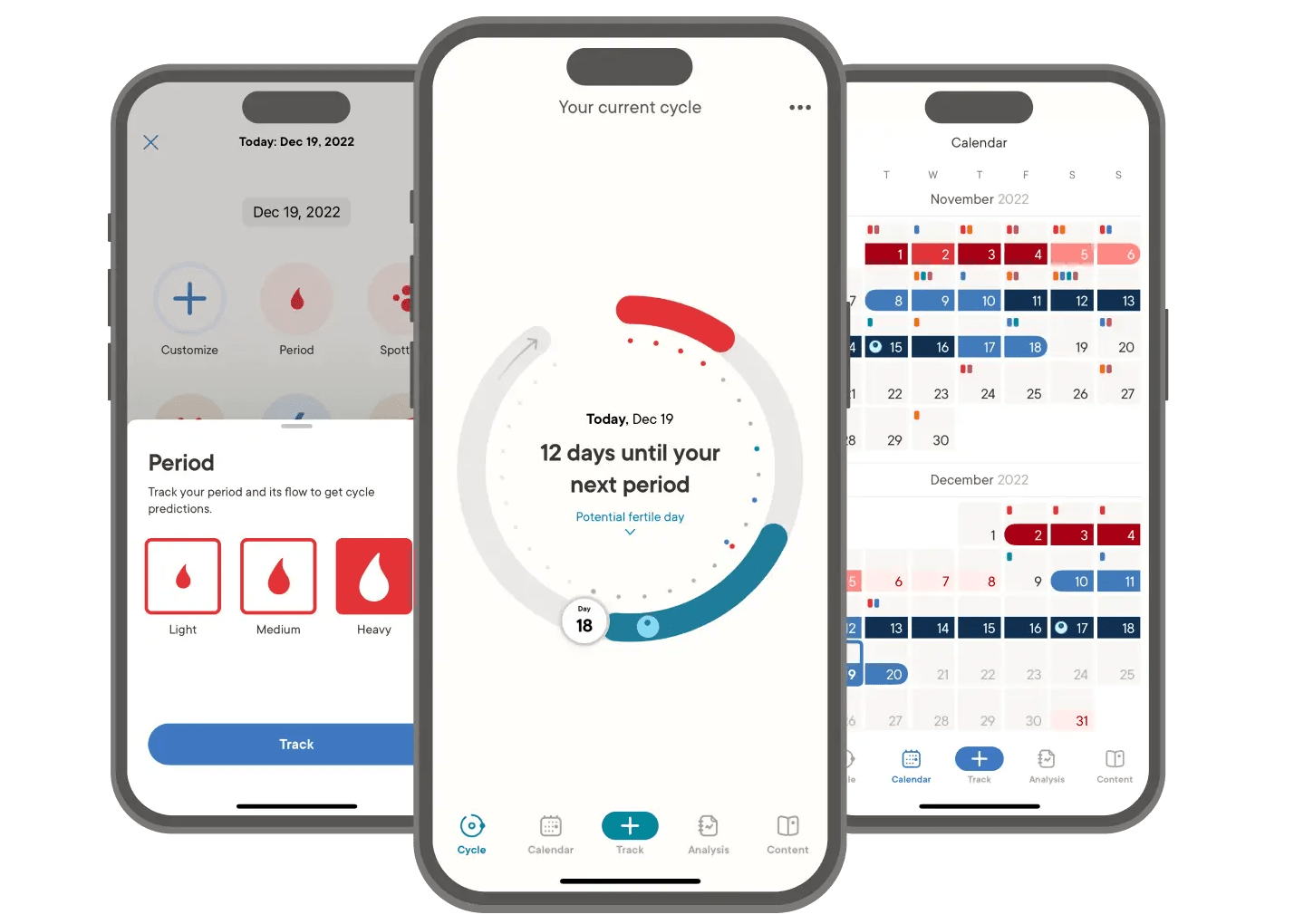In a world where we’re increasingly encouraged to track, measure and assess the habits that make up our daily lives, it should come as no surprise to learn that many people are tracking their sex lives with sex tracking apps. While it may seem strange, even obsessive, to track something so intimate, tracking your sex life has many benefits, and is akin to tracking your mental health or menstrual cycle – factors which are both importantly linked to your libido.
These days, almost everyone uses a Fitbit or Apple Watch to monitor step count, heart rate and other health variables. People who menstruate use apps like Natural Cycles and Clue to determine their follicular phase from their luteal, and to make sense of their symptoms. And of course, gym goers love the likes of Wild AI and MyFitnessPal to count macronutrients and control calorie deficit.
Tracking apps are a part of our modern lives and tracking has many benefits. But when it comes to sex, our activity, our arousal, our libido and our bodies, what are the pros and cons of monitoring, and what are the best tools to use to do so?
POST CONTENTS

Should I be tracking my sex life?
Most people track and record variables to understand, train and improve. It’s a practice. Gathering data on your health, behaviours, feelings and thoughts is a technique recommended by doctors, therapists, and sex coaches because doing so means you can analyze and draw conclusions about where you’re struggling and identify the causes for these struggles. But tracking sex is tricky, because there are so many factors that affect our sex lives.
Your libido is the desire you feel to engage in sexual activity. Generally it’s agreed that there are two types of desire – spontaneous, which means you might suddenly feel turned on. And responsive, meaning you’ll become aroused in response to some kind of stimulation. Your sexual desire is the force that can lead you toward or away from sexual behaviours. But your libido is just one element of your sexual identity and there’s a lot more to tracking your sex life than how often you feel like doing it.
The world we live in is enormously stressful and stress has a huge impact on people’s sexual relationships and desire to have sex. We know that our minds and bodies must be relaxed in order to feel like having sex and this also affects how much we enjoy it. Increased sexual satisfaction therefore has a direct effect on mood, relationships, connection, and self-love.
So if you’re feeling healthy, calm, happy, and stress free it’s more likely you’ll have a heightened sexual response and a greater capacity for pleasure and connection. But getting to this state of relaxation is often a challenge, especially in a stressful world. Then add diet, hormones, genetics and medications to the mix and you’re dealing with a huge range of factors that affect your libido.
Tracking can help with managing, raising and improving libido by analysing what’s affecting your desire. For example, if you can’t get in the mood without watching porn and are trying to break this cycle, tracking your progress could be an incredibly helpful tool.
Likewise, if you’re trialling a new practice like yoga, hooking up with a new partner, coming off a medication or testing a new diet, tracking your sex life and your ‘responsive’ versus your ‘spontaneous’ desire can be the key to understanding how these factors affect your body and help you to become your best sexual self.
Rather than just frequency of sex, you can track your feelings of arousal, what caused them, the quality of your orgasm, how you got off, and how you felt afterwards. This will help you to essentially master your sex life and have better partnered and solo sex.
What are the benefits of tracking my sex life?

Tracking your sex life has many benefits, just like tracking your periods or your physical health. Many people share the results of tracking with their partners.
A new study commissioned by international women’s healthcare brand Intimina, and conducted by YouGov, revealed a shocking gap in men’s knowledge of menstrual bodies. With 1,091 US people who identified as male surveyed, only forty-one percent could correctly identify what exactly menstruation is. Forty-two percent of respondents also believed it’s not possible for someone to become pregnant while menstruating. Spoiler alert, it is possible.
Sharing your findings after sex tracking means being able to educate your partner and share the processes that affect your body. This is good news for personal safety and sexual health. If your partner knows you might be hornier at a certain time of month or prefer certain positions during another because of cramps or lethargy, they can also take responsibility for ensuring that you are both having the best experience possible.
Tracking in a non-monogamous relationship also guarantees accountability and safety to a much greater extent. With certain apps you can record whether you had sex on a certain day, whether you used protection, whether you experienced any discomfort or noticed anything concerning. With other apps, such as iPlaySafe, you can share your sexual health status and STI results with current and potential partners, taking tracking to new levels and making safety a community issue, rather than a personal one.
But tracking, as a practice, can also simply serve to help you get better at solo and partnered sex.
For example, you could note down if you:
Tracking elements like these can make it so much easier to find out what really works for you alone, and with a partner.
How does my cycle affect my libido?
An important factor of tracking is that it isn’t just for when you’re sexually active. Recording the days you don’t have sex or masturbate or feel desire are just as important. This is because these days can give you a whole picture of what’s going on with your hormones and your lifestyle. If you’re not feeling horny, using a sex tracking app can help you figure out why.
Stress can affect our bodies in many different ways. One impact of stress is that your body triggers a huge increase in cortisol and corticotropin-releasing hormone to help you to tackle the situation. Both of these chemicals can impact the levels of our reproductive hormones, which in turn, affects our libido. And this is different for different bodies too. If you menstruate for example, or take hormonal birth control or steroids, your libido will fluctuate between high and low. Tracking your feelings on any given day can help you to understand these patterns.
Best ways to track your sex life
There are many ways to start tracking your sex life and the variables that impact it. Some people don’t feel comfortable putting personal data into apps, whereas others love to track with tech and use biofeedback devices like thermometers, smart sex toys and electrocardiogram (ECG) monitors, that measure the heart’s activity, to collect as much accurate data as possible.
Physical diaries and note taking
The easiest and most affordable way to track is simply by using a classic diary or your phone to make notes. “Many sex therapists often advise to keep a sex journal to help better understand their own sexuality, desire, and preferences.” says, Liz Klinger Founder of sex tech company Lioness.
“This type of exercise helps increase mindfulness and confidence in our own bodies.” Klinger also speaks from personal experience, having grown up in a conservative and religious Korean household “where we never talked about sex growing up. I was actually scared of my own body well into my mid-twenties where I had a difficult time communicating with partners and even myself about my sexuality.”
For the past six years, Klinger has been learning and tracking her own pleasure, which has helped to remove a lot of the guilt and shame she felt around sexual pleasure because “I began to see it as an aspect of my health and wellbeing.”
A daily log in a physical diary, in the notes app on your phone, or laptop, or just a quickly jotted list of your sexual thoughts, feelings and sensations each day can help you to track, understand and improve your relationship with sex, pleasure and your body.
Biofeedback devices
Another smart way to track your sex life and take your knowledge to the next level is to use biofeedback devices. Biofeedback uses electrical sensors to monitor and capture data about the body, such as temperature, heart rate, blood pressure, oxygen levels and movement to measure health and activity levels. Devices like this range from ECG machines and gym equipment to your Apple watch or smart vibrators like the one created by Lioness, which makes it possible to literally track and view the intensity of your orgasms.

“One of the coolest parts of creating Lioness has actually been seeing how people from all walks of life are Lioness users. From people newly discovering their bodies, first time vibrator users, people who have never had an orgasm before, post-menopausal people, people in their 70s, and people with penises.” says Lioness founder Liz Klinger. “The unifying theme seems to be people are curious to learn more about their own sexual pleasure, and see cool arousal and orgasm data.”
Tracking using biofeedback can help you to identify your orgasmic triggers, figure out which positions, tools, and stimulants work best for you. This can be incredibly helpful if you struggle to orgasm with a partner, or just struggle to climax in general.
Biofeedback markers can also enable you to take better care of your general health. If your FitBit is telling you it’s time to move and get your heart-rate up, why not masturbate? Or if you’re keeping an eye on your heart health and need to move slowly, track which positions and scenarios make it easiest to do this while still enjoying a regular sex life.
Specialist sex tracking apps
There are of course, dedicated apps that take your sexual activity into account and offer special logging and tracking sections just for sex. Period tracking and cycle awareness apps like Clue, Eve, Moody Month and Natural Cycles all provide a dedicated section to track sexual activity. Each app does this differently, with some offering checkbox options regarding contraception use, cervical mucus quality, spotting, temperature and more factors, while others will prompt you to record the day’s experiences with a journal entry inside the app.

Some people love tracking apps and use them religiously, while others find the idea of them, especially sex tracking apps, somewhat invasive. Fears around the safety and security of personal data were heightened after some health apps were linked to data selling scandals and others were linked to corporations managed by pro-choice campaigners.
Many apps list their privacy manifesto, data sharing ethics, and rules of engagement in the FAQ section of their websites, so if you’re concerned about your personal information, a quick internet search will usually throw up the company in question’s relationship to data security.
Dangers of sex tracking apps
Aside from personal security, targeted marketing and government tracking all being legitimate concerns, some people prefer not to use health apps for mental health reasons. Health apps have been linked to what’s known as the ‘yo-yo effect’ – defined as a brief obsession with short-term targets and goals, followed by a subsequent dopamine crash and ‘checking-out’ mentally when these goals become unsustainable and can’t be met. Ultimately, some believe this can discourage people from long-term healthy behaviours.
However, it’s usually fitness and dieting apps that are the main culprits when it comes to encouraging users to pile on the pressure. According to a survey by Digital Health Generation, young people report feeling ‘anxiety and terror’ associated with fitness-oriented apps.
Diary and sex tracking apps, period and cycle tracking apps, and biofeedback devices used to improve sexual pleasure luckily don’t seem to be associated with the same pressures and subsequent anxieties. In fact, according to the experts, it seems that by tracking your sex life with a sex tracking app, keeping your data private and setting personal incremental goals, your relationship to your own sexuality and that of your partner can flourish in just a matter of weeks.






Leave a Reply